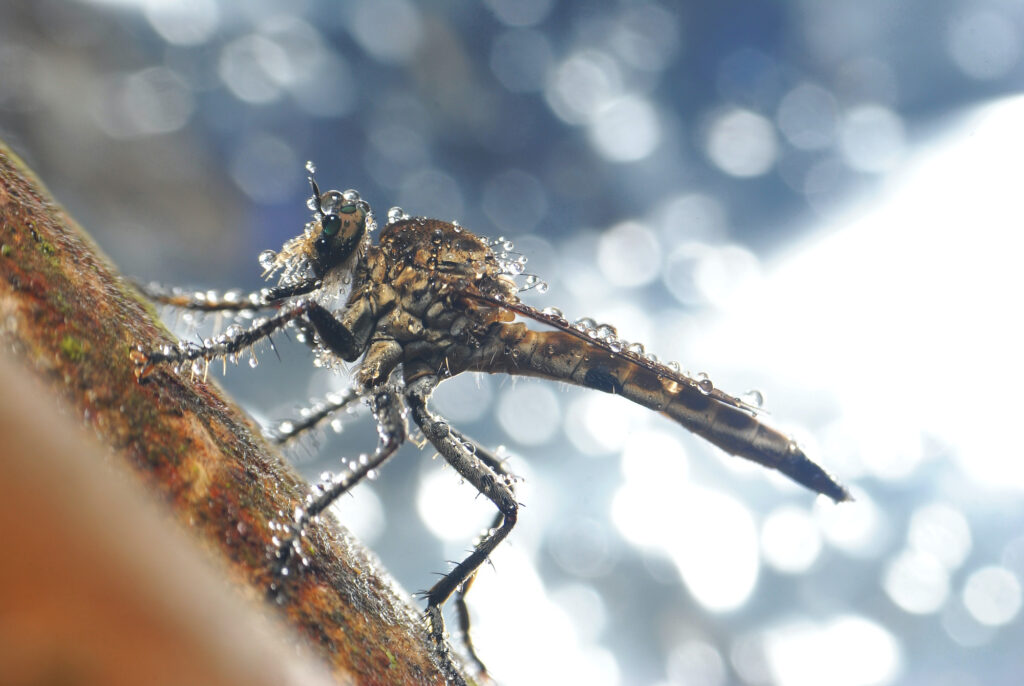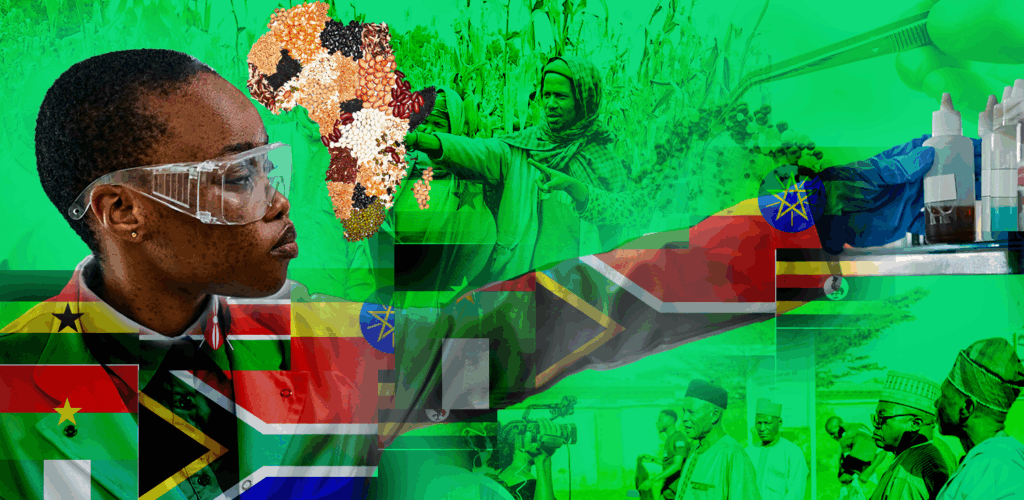In this web post, we trace the push to introduce genetically modified (GM) wheat into South Africa and Africa, beginning with Monsanto’s 2004 application to import Roundup Ready wheat into SA, through to the current ongoing opposition led by the ACB.
After Monsanto’s initial application was rejected, there was a long period before further applications were made, prompted by the commercial cultivation of GM wheat in Argentina, Brazil, and Paraguay, with other countries authorising its import for food and feed use.
In response, the ACB reached out to organisations within our networks across the Global South, from Latin America to Indonesia and several countries in Africa, to mobilise a coordinated opposition to GM wheat approvals.
We now await the South African government’s decision regarding local field trials. We hope that our ongoing court proceedings, which challenge the approval of Bayer’s so-called drought-tolerant GM maize (currently under review in the Constitutional Court), have prompted a more thorough, transparent process in assessing the risks before granting any further approvals.
According to the Argentine Ministry of Agriculture, in the period 2021-2022 in the provinces where droughts were recorded, the yield of HB4 GM wheat was lower than conventional wheat. Given our objections and this failure of GM technology in Argentina, we hope Trigall’s application for field trials in SA will be rejected by the Executive Council: GMO Act.
In response to Trigall Genetics’ application to grow HB4 wheat in field trials in South Africa during 2025 and 2026, ACB submitted objections. We noted that the application fails to address potential avenues of risk to the environment and human health, relying on outdated science and various assumptions that allow for risks to be dismissed without empirical testing.
As part of a collective of food sovereignty activists, social movements of peasants and indigenous peoples, and academics from Latin America, Africa, and Asia, ACB made a submission to seven United Nations Special Rapporteurs requesting urgent intervention regarding GM wheat HB4. The group’s substantive submission addressed the fallacy promoted by Bioceres that the HB4 variant is either drought tolerant or a solution to climate change.
ACB launched a petition, with 80+ organisations supporting our submission to the South African Executive Council (EC): GMO Act, to review and reassess its decision to grant approval for the importation of GM wheat HB4 into South Africa, and to set such approval aside.
ACB published a briefing paper, arguing that the South African biosafety regulators failed in the exercise of its biosafety oversight role to implement the precautionary principle, in granting approval for the importation of HB4 GM wheat to enter the local food system. Authorities gave their approval while the risk assessment lacked vital food safety evidence and not one feeding study had been done anywhere in the world.
ACB made a submission to the South African Biosafety authorities, the Executive Council (EC): GMO Act, to review and reassess its decision to grant approval for the importation of HB4 GM wheat and asked that they set it aside. More than 80 organisations from around the world supported our submission.
In August 2022, the South African government approved GM wheat variety HB4 for importation as food, feed, and for the purposes of industrial food and feed processing, following Nigeria’s approval in July that year. Since then, Argentina and Brazil have been the only two countries to approve the commercial cultivation of this variety.
Following Argentina’s lead, Brazil approved the use of HB4 wheat flour for human and animal consumption in 2021. Given that Brazil imports a substantial portion of its wheat from Argentina, this approval was crucial for the commercial viability of HB4 wheat in that region.
In 2020, Argentina became the first country to approve the cultivation and consumption of HB4 GM wheat, developed by Bioceres. This variety is engineered for drought tolerance, aiming to improve yields under water-stressed conditions. The approval marked a significant step in the commercialisation of GM wheat globally.
ACB submitted objections to Monsanto’s application for a commodity clearance permit for its Round-up Ready wheat. This was endorsed by numerous other organisations. In our submission, we noted that ample grounds exist for Monsanto’s application to be rejected out of hand, alternatively, that Monsanto’s application be rejected on the basis of the precautionary principle.
In January 2004, Monsanto announced it had approached the South African government for permission to import its genetically engineered (GE) Round-up Ready wheat. This was an obvious pre-emptive attempt to create a much-needed market for its GE wheat, because none at the time existed anywhere in the world. ACB held that the import of GE wheat into South Africa, and thereafter to other parts of Africa, is unnecessary, dangerous, and should be rejected out of hand by the government.












